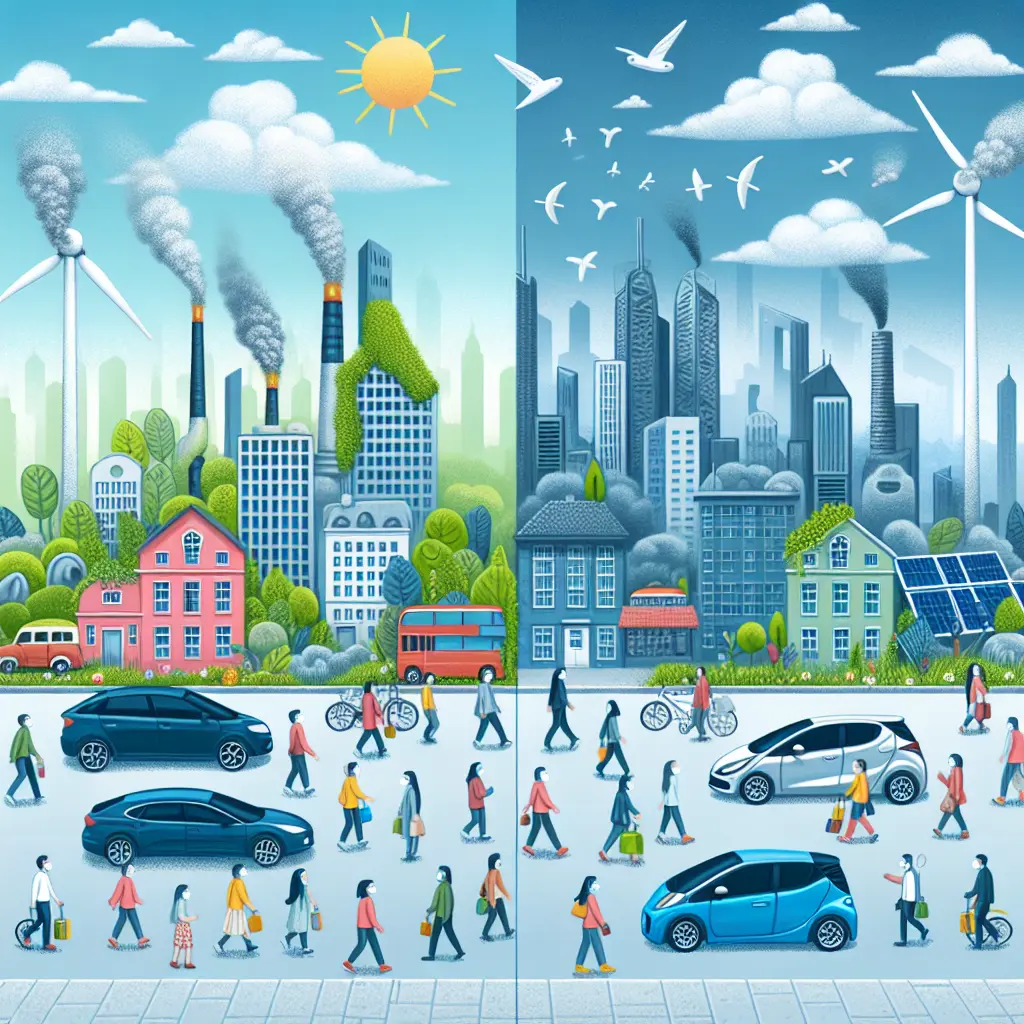As cities expand and populations increase, the quest for sustainable urban transport becomes more pressing. This is where electric vehicles (EVs) step in, promising a significant leap toward urban sustainability and improved urban air quality. The impact of electric cars on reducing air pollution is a topic gaining momentum, not just among environmental scientists but also within the broader public discourse. This article delves into how electric vehicles contribute to air quality improvement and explores the broader environmental impact of EVs.
The Role of Electric Vehicles in Urban Air Quality Enhancement: Electric vehicles offer a clean transportation alternative by operating on electric power instead of fossil fuels, thus categorized as zero-emission vehicles. The direct correlation between widespread electric car adoption and reductions in urban pollution levels is well-documented. Studies suggest that replacing a gasoline-powered car with an electric vehicle can significantly decrease the emission of nitrogen oxides, particulate matter, and other pollutants known to impair air quality and human health. Source
Environmental Impact of EVs: Beyond Just Emissions: When discussing EVs and the environment, it's crucial to consider not just the emissions during operation but also the production and end-of-life phases of the vehicle. The environmental impact of EVs includes factors like battery production and electricity generation. While there are emissions associated with these processes, the overall lifecycle emissions of electric vehicles are generally lower compared to conventional vehicles. Furthermore, advancements in battery technology and a shift towards renewable energy sources continue to diminish these impacts, making EVs a more sustainable option for future urban transport. Source
Advancing Urban Sustainability Through Electric Mobility: Electric mobility is pivotal in achieving sustainable urban transport. Cities plagued by congestion and high levels of urban pollution can benefit immensely from adopting electric vehicles. EVs contribute to a cleaner, quieter urban environment, enhancing the quality of life for city dwellers while aligning with global sustainability targets. Source
The Surge in Electric Car Adoption: The adoption of electric cars has seen a rapid increase globally, spurred by government incentives, falling battery costs, and growing environmental awareness among consumers. In Europe, for instance, sales of electric cars have soared, driven by stringent emission standards and subsidies for electric vehicle buyers. Source Similarly, in the United States, various states have committed to phasing out gasoline cars by setting ambitious deadlines for going all-electric.
Challenges and Opportunities
Despite the clear benefits associated with electric vehicles related to air pollution reduction and urban air quality improvement, challenges remain. One major issue is the need for widespread charging infrastructure to support electric vehicle benefits fully. Additionally, the initial cost of EVs can be a barrier for many potential users, although this is gradually being offset by lower operational and maintenance costs.
Moreover, the recent news surrounding Disney+ serves as a reminder of the broader context in which EV adoption occurs. While seemingly unrelated, Disney's approach to managing technological shifts—evident from their streaming service adjustments and crackdown on password sharing—parallels the dynamic changes occurring in the automotive industry as it transitions to electric mobility. The introduction of bundled streaming services like Disney+, Hulu, and Max at competitive prices reflects a market adapting to consumer needs and technological possibilities. Source
Additionally, Disney's experiences with data security and system integrity—highlighted by recent hacking incidents—underscore the importance of robust digital infrastructures, a consideration equally relevant to the burgeoning network of connected electric vehicles and charging stations. Source
Looking Ahead: The Future of Electric Vehicles in Urban Settings
Future Prospects
The future of electric vehicles in urban settings looks promising but requires concerted efforts from various stakeholders including governments, industry players, and consumers. Policies that encourage electric vehicle uptake, investment in charging infrastructure, and continued technological innovation will be key to maximizing the potential of electric vehicles for air quality improvement.
In conclusion, electric vehicles represent a transformative solution to the problem of urban pollution and are integral to advancing urban sustainability. Their role in promoting clean transportation and improving urban air quality is clear, marking them as pivotal to the evolution of sustainable urban transport systems.
By embracing electric mobility, cities can make significant strides towards becoming cleaner, healthier places for their residents. As we continue to witness advancements in this area, it is crucial that all stakeholders remain engaged and supportive of this clean transportation revolution.








Leave a Comment